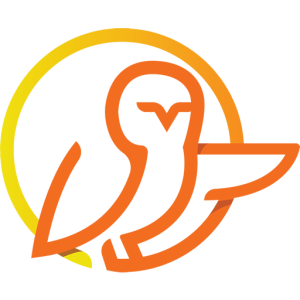What is the difference between coaching and mentoring?
A mentor is typically someone in your organization who knows your job and industry and can provide specific career advice or networking opportunities. A coach is someone that is objective who helps you discover the answers based on thoughtful questions, meaningful assessments, and genuine empathy. A coach with specific knowledge, for example in organizational psychology, may provide guidance, but only after the coach and client have “drained the bucket.”
How did you get into coaching?
After ten years practicing as an organizational psychologist, I wanted more for my career and clients. Leaders would ask, “Now what?” after reviewing their 360 assessment results. They needed a plan and thought partner to help them understand how to use the results to achieve their goals and make real change at work and in themselves. They needed a coach!
Nearly a decade later, I have coached hundreds of leaders at all levels, including emerging leaders, and those returning to their careers in all types of professions. Coaching is the most gratifying work! I wake up each day knowing I am making a difference.
What is an ideal client?
The ideal client is the person in front of me who wants to learn more about themselves, how they can use their strengths, develop new ones, achieve their goals, and be the leader they know they can be! My belief and experience is that a great coach should be able to coach anyone who is ready for coaching.
What type of coaching process do you use?
The coaching process is customized for the client based on their needs and preferences and where they want to go. I meet my clients where they are in their careers and their life to help them get to where they want to go. The process can be less structured in the beginning while I help “connect the dots” or more structured for those that need it.
All clients have access to a coaching portal with personalized tools and resources based on their interests and goals. We build an action plan that is tailored to realistic timelines and goals to monitor progress. Like any developmental activity, those who put the most into coaching, get the most out of it.
What type of assessments do you offer?
We have a suite of assessments that we can recommend depending on your needs. The assessments we offer are valid and tested across industries and professions. A Leadership 360 is just one example. No matter the assessment, we help you interpret the results to achieve your goals.
What is your coaching philosophy?
My coaching philosophy is embedded in the science of positive psychology and workplace psychology. I believe in my clients’ ability to achieve a stronger sense of awareness and efficacy with valid, meaningful assessments and the right tools. My heart of service is in everything I do. I am their dedicated thought partner to help them achieve growth and their potential.
What goals have your clients achieved, and what are your areas of specialty?
Communication is typically at the center of most goals, whether it’s having difficult conversations, communicating expectations, getting buy-in for change, or conflict management. A client may find themselves needing to manage up, down, or across the organization more effectively. My clients have achieved success in these areas and more.
Other common topics are time management, delegation, performance management, and those meant to make the workplace more engaging and effective. This could mean learning and developing key competencies for that organization, such as resiliency, flexibility, and strategic thinking.
No matter the goal, I provide the framework and tools to discover your strengths and develop new ones.
What if I am having trouble articulating my goals and they change?
Goals can shift and often do as life shifts. It’s my job to help you define specific, measurable, attainable goals that are relevant to your overall career and leadership goals and needs. I quickly pivot to help you modify your goals and set new ones.
Is coaching in-person or virtual?
Coaching can be done in person in the Greater Richmond, Virginia area, by phone or video, or a combination.
Outside the Richmond area? Coaching by phone or video are options, or an in-person kick-off coaching session followed by phone or video sessions may suit your needs.
Coaching by phone and video provides clients with the maximum amount of flexibility to be coached anywhere, anytime. I have coached clients by phone and video for nearly a decade, developed a strong rapport, and achieved positive results.
How many sessions should I sign up for?
A minimum of three sessions is recommended for those seeking career coaching and leadership coaching. My clients have achieved many types of goals, renewed energy, and a clear direction in three sessions. Additional sessions can be added.
Executives and those in rapidly changing environments will benefit from more sessions and more time. Six or more sessions are recommended for executives.


